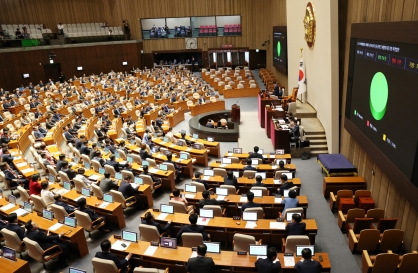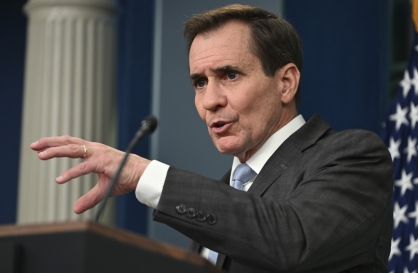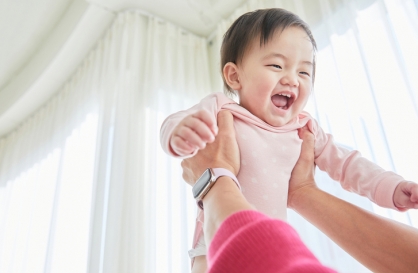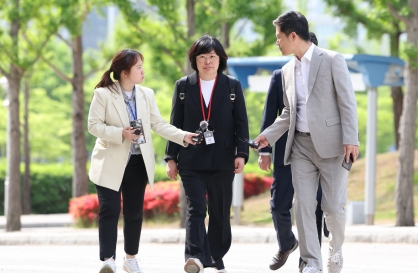When U.S. Ambassador Mark Lippert’s arrival in South Korea was unexpectedly delayed by a day in October last year, rumors swirled over the reason.
It turns out, he had a problem with American Airlines’ paperwork for his pooch, a basset hound named Grigsby, and he thus detoured to Los Angeles to fly instead with Korean Air to Incheon.
The details on what happened remain unclear. While the episode may not have been pleasant for the U.S. flag carrier, it highlighted the Texas-headquartered airline’s stringent rules on pet policy, relative to the Korean airline, which somehow made Grigsby’s trip possible.
The ambassador specifically thanked Korean Air upon arrival, and the airline later reportedly explained the dog flew in the cargo bay and that it had no quarantine issues.
Increasingly, the culture of catering to the needs of dogs, or more specifically their owners, is budding in Korea. But such a change is not yet universal or supported by regulations and infrastructure necessary to foster a healthy pet-keeping culture.
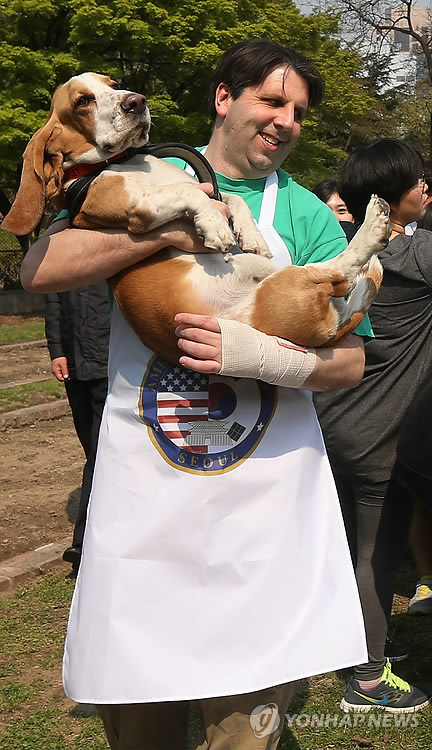 |
U.S. Ambassador Mark Lippert holds his dog Grigsby at an outdoor event at his residence in Seoul on April 22. (Yonhap) |
Dog owners still often struggle to use public transport, dine in restaurants and take walks in recreational forests with their four-legged companions ― even with a leash. Even in condominiums and apartments that allow pets, many owners get into arguments with their neighbors, who are irked by the animals’ barking, excrement or odor.
Yoon So-ra, a 30-year-old company employee in Songdo, Incheon, said she had lived in a pet-friendly apartment until last year with her 3-month-old Shiba Inu. One day while she was checking her mailbox, he dribbled a little bit of urine on the lobby’s floor, which triggered the rage of a janitor.
“I was going to clean it up of course and had paper towels and everything. But then a freaked out janitor rushed to me out of nowhere, yelling that I could not live with him here and dogs are stinky and dirty,” she said.
“I felt like I was being robbed of my right and raised issue with the chief of the resident association later on, but nothing changed. That was one of the reasons I moved out after the contract expired.”
Yoon stressed that the central and local governments should step up efforts to devise detailed instructions on taking pets to public places, which is not covered in the otherwise expansive Animal Protection Act.
The bulletin boards run by Seoul City, Seoul Metropolitan Facilities Management Corp. and Seoul City Council are brimming with calls from pet owners to amend a city ordinance to let them use the paths by Cheonggyecheon, a stream flowing through downtown Seoul, with their dogs.
Legislation steps and public education should also take place to address complaints about irresponsible dog owners, some also suggest.
In New York, where dog walkers are ubiquitous, had to deal with more than 18,000 tons of animal feces left on the streets every year until it enacted a statute in 1978 requiring owners to pick it up themselves. Now the city lists animals that are illegal to own and issues a license to pet owners, while giving instructions on dog management and banning animal fighting and abuse.
American Airlines’ website also details travel restrictions by breed and destination, kennel guidelines, certificates required for the dog or cat’s health and their food and water.
The Korean government, for its part, has been striving to improve its policy. Having started from mid-2014, all pet owners must register their animals with local governments or face a fine of up to 400,000 won ($360).
Yet its efforts have apparently borne little fruit. Around the country, registration rates are poor and in many regions no fines have been collected and more dogs were found abandoned.
To prevent social tension and foster responsible pet culture, efforts should be made to raise public awareness and mutual understanding between owners and others through administrative steps, experts say.
In one reply on the website of the SMFMC, an official in charge of Cheonggyecheon management said that no progress has been made regarding any legislative revision, citing persistent opposition from other citizens. “It is a matter that entails a long-term review and improvement in social consciousness,” he said.
By Shin Hyon-hee (
heeshin@heraldcorp.com)

